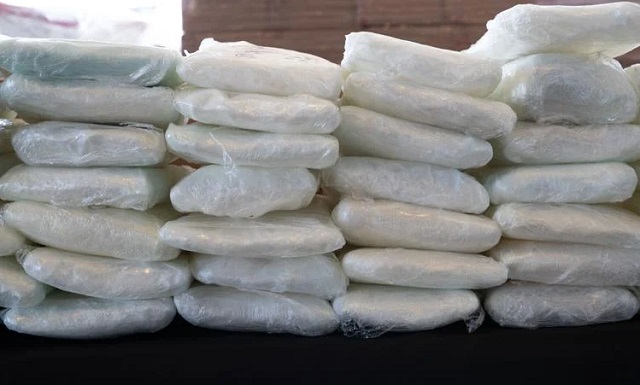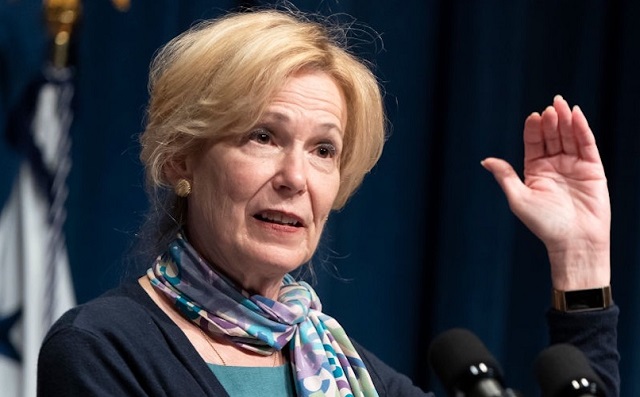Crime
Online Harms bill could see Canadians face house arrest based on citizen complaints: Constitutional lawyer

From LifeSiteNews
Constitutional lawyer Marty Moore has warned LifeSiteNews that under the proposed Online Harms Act, courts could impose restrictions on Canadians under threat of jail if there is ‘fear’ the accused may commit a ‘hate crime’ in the future.
A top constitutional lawyer has told LifeSiteNews that the most “shocking” part of the Trudeau government’s proposed “Online Harms Act” is that it could allow provincial courts to impose house arrest on Canadians over a “fear” that they may commit a “hate crime” in the future.
“Possibly the most shocking part of this Bill is the addition of section 810.012 to the Criminal Code,” Marty Moore, who serves as the Litigation Director for Charter Advocates Canada, which is fully funded by the Justice Centre for Constitutional Freedoms (JCCF), told LifeSiteNews.
“Under this new provision, a person can assert to a provincial court that they ‘fear’ someone will promote genocide or antisemitism, and that provincial court is empowered to jail a person for one year (two years if they have previously been convicted of such an offense) if they refuse to agree to court-imposed conditions.”
Moore noted that the “court-imposed conditions” could be the mandated wearing of an ankle monitor, having a curfew, or not communicating with certain people.
Similar pre-crime punitive tactics may also be carried out against Canadians for other so-called “hate” offenses unrelated to antisemitism or genocide, something Justice Minister Arif Virani, who introduced Bill C-63 into Parliament Monday, continues to defend.
“[If] there’s a genuine fear of an escalation, then an individual or group could come forward and seek a peace bond against them and to prevent them from doing certain things,” Virani said Wednesday, arguing that such tactics “would help to de-radicalize people who are learning things online and acting out in the real world violently – sometimes fatally.”
If passed, Bill C-63 will create the “Online Harms Act” and modify existing laws, including the Criminal Code and the Canadian Human Rights Act, in what the Liberals under Prime Minister Justin Trudeau claim will target certain already illegal internet content such as child sexual abuse and pornography.
However, the proposed law also seeks to target broadly defined “hate speech,” leading many Canadians to worry the bill is a trojan horse being used to usher in political censorship.
Most worryingly, the new bill will allow it so that anyone can file a complaint against another person with the Canadian Human Rights Commission for “posting hate speech online” that is deemed “discriminatory” against a wide range of so-called protected categories. The bill even includes a provision that allows the Commission to withhold the identity of the accuser from the accused, effectively paving the way for Canadians to have to defend themselves against anonymous complaints.
Moore, as reported by LifeSiteNews on February 27, previously said that the “Online Harms Act” will allow a new “Digital Safety Commission” to conduct “secret Commission hearings” against those found to have violated the new law, which raises “serious concerns for the freedom of expression” of Canadians online.
According to the bill’s text, Canadians could soon face life imprisonment for certain “hate crimes,” in addition to other years-long prison terms and hefty fines for online posts the government deems as “hate speech” on the basis of gender, race and other categories.
Bill gives overly ‘broad definition’ to the term ‘hateful content’
In additional comments to LifeSiteNews about Bill C-63, Moore warned that the bill gives a broad definition to the term “harmful content.”
“The definition of ‘content that incites violence’ could capture someone encouraging minor property damage in a context where it ‘could cause’ a person to do something that ‘could’ interfere with an ‘essential service, facility or system,’” Moore told LifeSiteNews.
“Similarly, the definition of ‘content that incites violent extremism or terrorism’ could capture expression that encourages minor property damage in the course of political protest designed to pressure government on a particular issue, if the expression ‘could cause’ a person to do something that ‘could cause’ a ‘serious risk to the health or safety of the public,’” he added.
Moore observed that given Canadians recent experience in dealing with COVID mandates and lockdowns, which “literally banned protests on the basis that they could cause a risk to the health or safety of the public,” it is not hard to see how “these provisions” in Bill C-63 could be used to “censor expression advocating for civil disobedience and, other than minor property damage, peaceful protest.”
To enforce the proposed law, the bill calls for the creation of a Digital Safety Commission, a digital safety ombudsperson, and the Digital Safety Office.
The ombudsperson along with the other offices will be charged with dealing with public complaints regarding online content. It will also put forth a regulatory function in a five-person panel “appointed by the government,” whose task will be monitoring internet platform behaviors to hold people “accountable.”
Moore told LifeSiteNews that Canadians have already seen government “grossly abuse Canadians’ rights and freedoms in the name of preventing harm and ensuring safety (COVID mandates).” He noted that this bill could give a commission of unelected officials a “concerning” amount of “reach” into “Canadians’ lives.”
In addition to Moore, Conservative Party of Canada leader Pierre Poilievre has also indicated the proposed law may be dangerous, saying earlier this week that the federal government is merely looking for clever ways to enact internet censorship laws.
On Tuesday in the House of Commons, Poilievre came out in opposition to the Online Harms Act, saying that if the Trudeau government’s goal is to protect children, he should be enforcing criminal laws rather than censoring opinions online.
Crime
DEA doubtful of cartel order to stop fentanyl production

From The Center Square
DEA officials remain skeptical of reports that Mexican cartel leaders have ordered their producers to stop making fentanyl.
In early 2023, the leaders of the Sinaloa and Jalisco cartels reportedly ordered subordinates to stop the production of fentanyl. In October 2023, Los Chapitos, the group led by the four sons of imprisoned boss Joaquín “El Chapo” Guzmán, hung banners in prominent locations in Sinaloa, Sonora, and Baja California ordering the fentanyl ban.
DEA officials made it clear in the latest National Drug Threat Assessment that they are doubtful.
“The ban is probably a public relations stunt, however, or an attempt by the cartels to consolidate production among a smaller number of trusted manufacturers and punish others,” according to the report.
Furthermore, DEA officials have seen no indication of a reduction in the illicit fentanyl supply.
“Throughout 2023, fentanyl was seized at the border in equal or higher quantities as in previous years, and no DEA field office reported that fentanyl is less available or more expensive, either of which would point to a decrease in the supply,” according to the report.
Illicit fentanyl killed nearly 38,000 Americans in the first six months of 2023, according to the DEA report. Synthetic opioids were involved in 74,225 deaths in 2022 – 68% of the total 111,036 deaths that year, according to the Centers for Disease Control and Prevention.
DEA officials said the cartels use precursor chemicals from China along with pill presses to press fentanyl into pills that resemble prescription medication. Cartels and street dealers also mix illicit fentanyl with other drugs including heroin and cocaine, increasing the risk of overdose or death.
The report also noted that the purity level of illicit fentanyl in the U.S. drug market has increased and the amount of fentanyl found in counterfeit prescription pills has increased, making the nation’s top drug threat even more dangerous.
Seizures of fentanyl are at record levels, according to the report. Over the past two years seizures of fentanyl powder nearly doubled. DEA seized 29,048 pounds of fentanyl in 2023. And the more than 79 million fentanyl pills seized by DEA in 2023 was almost triple what was seized in 2021.
Brett Rowland
Investigative Reporter
Addictions
British Columbia to re-criminalize hard drug use in public after massive policy failure

From LifeSiteNews
British Columbia premier David Eby announced that his province plans to re-criminalize hard drug use in public spaces after its decriminalization last year led to widespread social disorder.
British Columbia is asking the Trudeau government to roll back its drug decriminalization program after increased violence and continued overdoses.
On April 26, New Democratic Party (NDP) premier of British Columbia David Eby announced that he is working with Prime Minster Justin Trudeau’s federal government to re-criminalize drug use in public spaces, including inside hospitals, on transit, and in parks. British Columbia, under permission from the Trudeau government, had decriminalized such behavior in 2023.
“Keeping people safe is our highest priority,” Eby explained in a press release. “While we are caring and compassionate for those struggling with addiction, we do not accept street disorder that makes communities feel unsafe.”
“We’re taking action to make sure police have the tools they need to ensure safe and comfortable communities for everyone as we expand treatment options so people can stay alive and get better,” he continued.
Under the new regulations, police would be given the power to prevent drug use in all public places, including hospitals, restaurants, transit, parks and beaches.
However, drug use would remain legal at “a private residence or place where someone is legally sheltering, or at overdose prevention sites and drug checking locations.”
Eby’s concerns over drug use were echoed by Minister of Public Safety and Solicitor General Mike Farnworth who said, “Our communities are facing big challenges. People are dying from deadly street drugs, and we see the issues with public use and disorder on our streets.”
“As we continue to go after the gangs and organized criminals who are making and trafficking toxic drugs, we’re taking action now to make it illegal to use drugs in public spaces, and to expand access to treatment to help people who need it most,” he promised.
Beginning in early 2023, Trudeau’s federal policy, in effect, decriminalized hard drugs on a trial-run basis in British Columbia.
Under the policy, the federal government began allowing people within the province to possess up to 2.5 grams of hard drugs without criminal penalty, but selling drugs remained a crime.
While British Columbia has not yet indicated it plans to re-criminalize possession, its decision to clamp down on public drug use presents a major departure from its previous tactics of continually liberalizing its attitude toward narcotic use.
Since being implemented, the province’s drug policy has been widely criticized, especially after it was found that the province broke three different drug-related overdose records in the first month the new law was in effect.
The effects of decriminalizing hard drugs in various parts of Canada has been exposed in Aaron Gunn’s recent documentary, Canada is Dying, and in U.K. Telegraph journalist Steven Edginton’s mini-documentary, Canada’s Woke Nightmare: A Warning to the West.
Gunn says he documents the “general societal chaos and explosion of drug use in every major Canadian city.”
“Overdose deaths are up 1,000 percent in the last 10 years,” he said in his film, adding that “[e]very day in Vancouver four people are randomly attacked.”
-

 conflict17 hours ago
conflict17 hours ago‘It Makes No Sense’: Experts Puzzled By Biden Admin’s Claim That Rafah Invasion Wouldn’t Help Israel Defeat Hamas
-

 Opinion7 hours ago
Opinion7 hours agoCanada’s fertility, marriage rates plummet to record lows: report
-

 Brownstone Institute1 day ago
Brownstone Institute1 day agoMedical Elites’ Disgrace Over Ivermectin
-

 Bruce Dowbiggin14 hours ago
Bruce Dowbiggin14 hours agoWhy Do The Same Few Always Get The Best Sports Scoops?
-

 COVID-1910 hours ago
COVID-1910 hours agoFormer COVID coordinator Deborah Birx now admits jabs could have injured ‘thousands’
-

 Energy13 hours ago
Energy13 hours agoBuckle Up for Summer Blackouts: Wind Is Already Failing Texas in Spring
-

 Bruce Dowbiggin2 days ago
Bruce Dowbiggin2 days agoGetting Real About Justin’s Real Estate Economy. It Won’t Last
-

 COVID-1917 hours ago
COVID-1917 hours agoThe New York Times Admits Injuries from COVID-19 Shots







